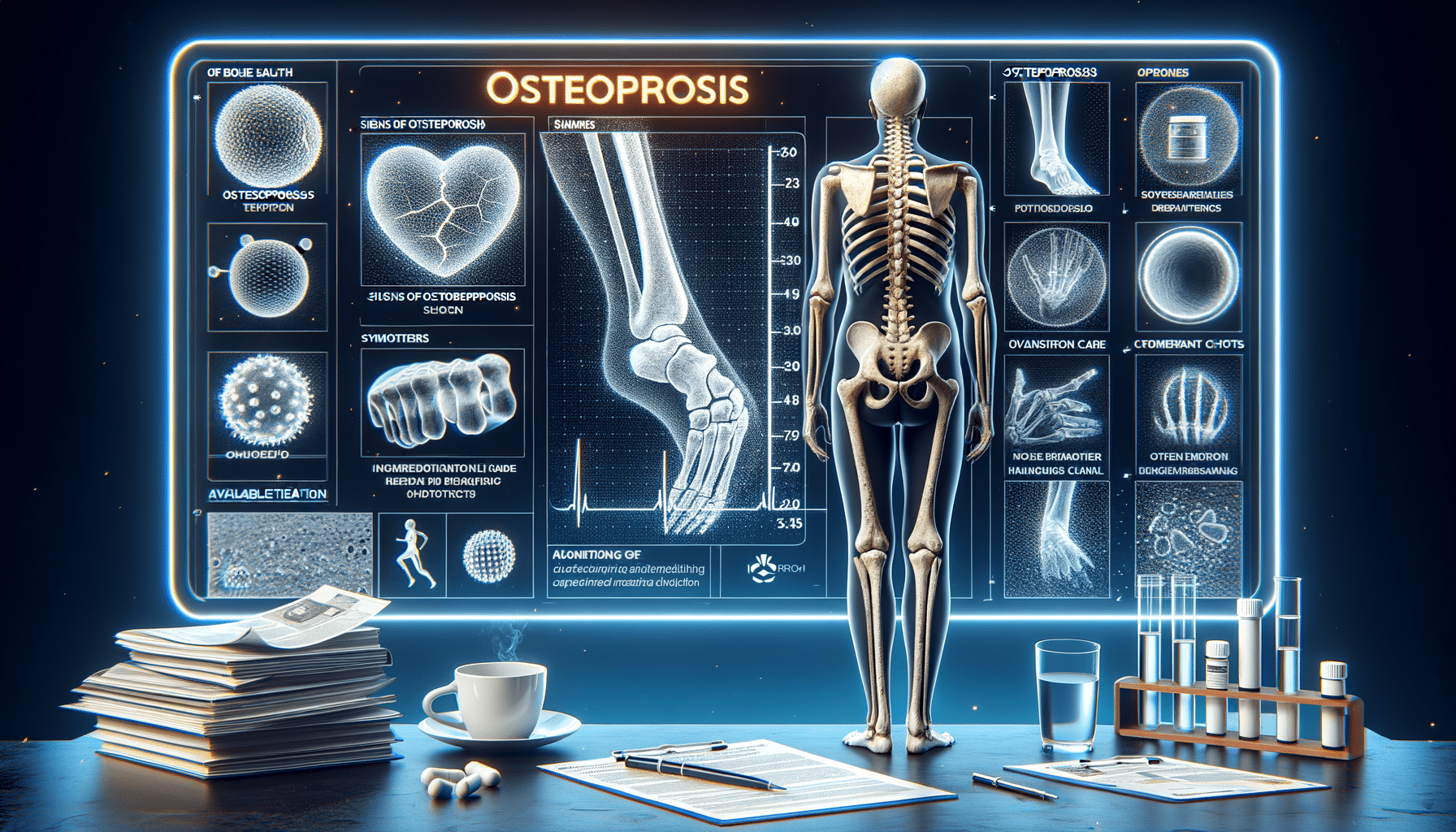
Understanding Osteoporosis: Symptoms and Care Options
Introduction to Bone Health
Bone health is a crucial aspect of overall well-being, often overlooked until problems arise. Our bones provide structure, protect organs, anchor muscles, and store calcium. Maintaining healthy bones is essential at every stage of life, as it helps prevent conditions like osteoporosis, which can lead to fractures and other complications. Understanding the factors that contribute to bone strength and implementing practices to support bone health can significantly impact quality of life.
Bone health is influenced by several factors, including diet, physical activity, and lifestyle choices. Calcium and vitamin D are vital nutrients that support bone density and strength. Regular weight-bearing exercises help maintain bone mass, while habits like smoking and excessive alcohol consumption can weaken bones. By adopting a bone-friendly lifestyle, individuals can reduce the risk of developing osteoporosis and other bone-related conditions.
Recognizing the Signs of Osteoporosis
Osteoporosis is a condition characterized by weakened bones, increasing the risk of fractures. It often develops slowly over several years and is usually diagnosed when a fall or sudden impact causes a bone to break. Recognizing the early signs of osteoporosis is essential for timely intervention and management.
Common signs of osteoporosis include:
- Back pain, caused by a fractured or collapsed vertebra
- Loss of height over time
- A stooped posture
- Bone fractures that occur more easily than expected
Early diagnosis is crucial, as it allows for the implementation of strategies to slow bone loss and prevent fractures. Bone density tests can help assess bone health and determine the risk of osteoporosis. These tests are particularly recommended for postmenopausal women and older adults, who are at higher risk.
Treatment Options for Osteoporosis
Once osteoporosis is diagnosed, several treatment options are available to manage the condition and improve bone health. These treatments aim to slow bone loss, increase bone density, and reduce the risk of fractures.
Common treatment options include:
- Medications: Several medications can help strengthen bones, including bisphosphonates, hormone-related therapy, and bone-building medications.
- Calcium and Vitamin D Supplements: Ensuring adequate intake of these nutrients supports bone health and complements other treatments.
- Lifestyle Modifications: Incorporating weight-bearing exercises, maintaining a balanced diet, and avoiding smoking and excessive alcohol consumption can enhance treatment outcomes.
It’s important to work closely with healthcare professionals to develop a personalized treatment plan that addresses individual needs and risk factors. Regular monitoring and adjustments to the treatment plan may be necessary to achieve optimal results.
The Role of Nutrition in Bone Health
Nutrition plays a pivotal role in maintaining bone health and preventing osteoporosis. A balanced diet rich in essential nutrients supports bone density and overall skeletal strength. Calcium and vitamin D are particularly important for bone health, as they work together to build and maintain strong bones.
Key dietary considerations for bone health include:
- Calcium-Rich Foods: Dairy products, leafy greens, and fortified foods are excellent sources of calcium.
- Vitamin D Sources: Sun exposure, fatty fish, and fortified foods can help meet vitamin D requirements.
- Magnesium and Phosphorus: These minerals support bone structure and are found in nuts, seeds, and whole grains.
A well-rounded diet that includes a variety of nutrients can help prevent bone loss and support overall health. Consulting with a nutritionist or healthcare provider can provide personalized recommendations to meet individual dietary needs.
Conclusion: Supporting Bone Health for a Better Future
Maintaining bone health is a lifelong commitment that requires attention to diet, lifestyle, and medical care. Understanding the signs of osteoporosis and exploring treatment options are essential steps in managing bone health. By prioritizing nutrition, engaging in regular physical activity, and seeking medical advice when needed, individuals can significantly reduce their risk of osteoporosis and related complications.
Proactive measures, such as early diagnosis and personalized treatment plans, can improve quality of life and ensure stronger, healthier bones. Embracing a bone-friendly lifestyle today can pave the way for a more vibrant and active future.

